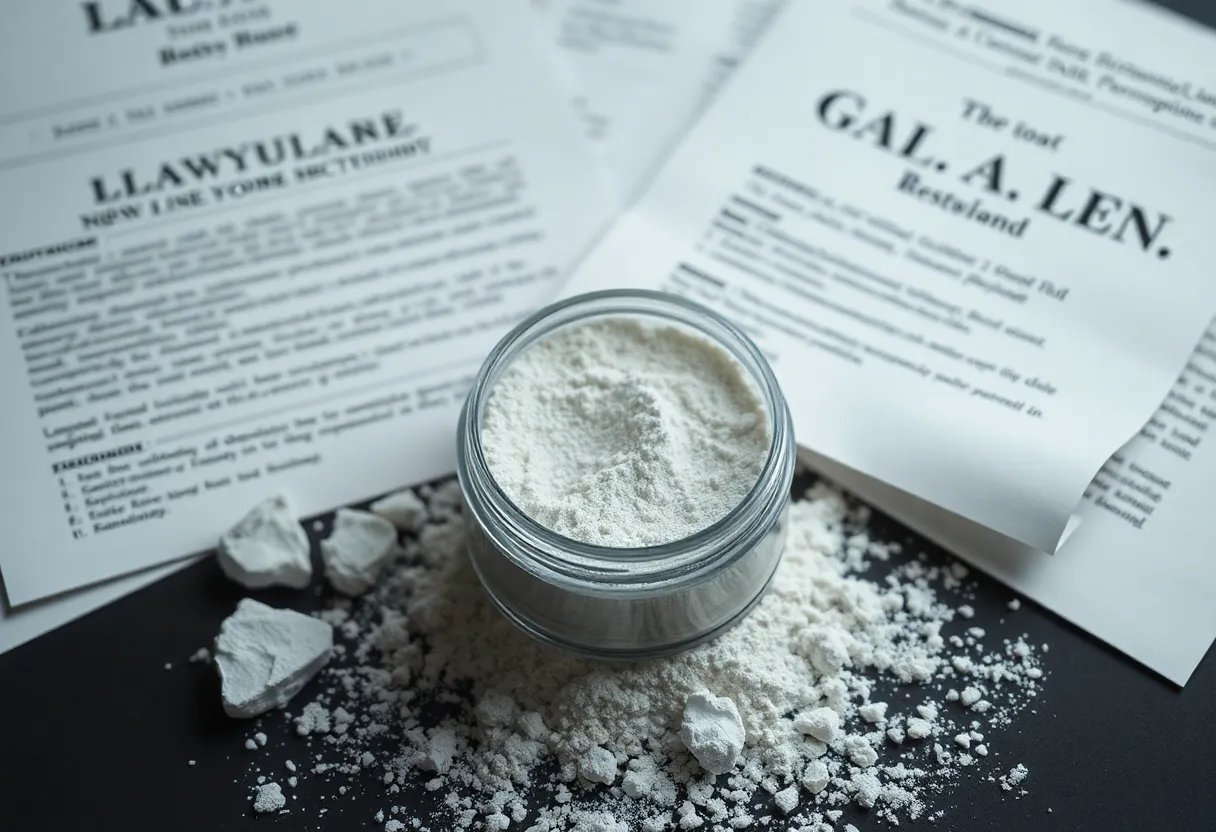News Summary
Warren Buffett’s Berkshire Hathaway profits from a talc supplier facing cancer-related lawsuits, raising questions about corporate responsibility.
Controversy Erupts Over Talc’s Tainted Legacy
In a striking revelation, it has come to light that Warren Buffett’s Berkshire Hathaway has significantly profited from the sale of a makeup ingredient linked to cancer. This unsettling connection revolves around Whittaker, Clark, & Daniels, a talc supplier for cosmetics that is now embroiled in legal turmoil, facing lawsuits from thousands of consumers exposed to harmful levels of asbestos.
The Personal Toll: Juliet Gray’s Battle with Peritoneal Mesothelioma
Among those affected is Juliet Gray, who has recently been diagnosed with peritoneal mesothelioma, a particularly aggressive and incurable cancer. Gray attributes her dire health condition to her long-time use of various makeup products, including powders, eye shadow, and blush that contained asbestos. Unbeknownst to her, these seemingly ordinary cosmetic items harbored significant health risks.
An Alarming Bankruptcy Filing
In September 2022, Whittaker, Clark, & Daniels took the drastic step of filing for bankruptcy. The company cited a challenging financial landscape, revealing finite resources amounting to $80 million cash-on-hand and a dire lack of funding to handle their mounting legal issues. The bankruptcy filing has drawn scrutiny due to the nature of its execution.
The Texas Two-Step: A Controversial Corporate Strategy
Utilizing a legal maneuver known as the Texas two-step, Whittaker, Clark, & Daniels seemingly sought to evade accountability for the asbestos-related lawsuits pressing against them. This method allows companies to shed liabilities by reorganizing under bankruptcy protection, a strategy that has sparked intense criticism as it effectively protects financially stable corporations from facing the consequences of their actions.
The Eyes on Berkshire Hathaway
Despite claims of financial distress, the fact that the company’s assets and liabilities are held by a Berkshire Hathaway subsidiary raises eyebrows. Berkshire Hathaway acquired Whittaker, Clark, & Daniels back in 2007, well aware of the health concerns surrounding talc. Documents reveal that the giant conglomerate had plans to profit from the remaining assets of the company, including cash reserves and insurance, even as they faced numerous lawsuits.
Litigation and Settlement Proposals
Amid this turmoil, Whittaker, Clark, & Daniels proposed a controversial $535 million settlement for all ongoing and prospective talc-related claims. This offer has been deemed inadequate by many plaintiffs’ attorneys, who argue that it does not sufficiently compensate victims suffering from grievous health repercussions. The company earlier ceased its talc distribution in 2004, yet it retained legal responsibilities, raising further questions about accountability.
Long History of Talc Concerns
The connection between talc and asbestos has been known since 1898, with established risks for talc miners identified as early as the mid-1960s. Despite this awareness, Whittaker, Clark, & Daniels maintained that their talc was asbestos-free since 1976. Conveniently, the Cosmetic, Toiletry, and Fragrance Association implemented less stringent regulations for asbestos testing, allowing the industry to continue using the hazardous material under looser definitions.
The Ripple Effects of Corporate Strategies
As Whittaker’s bankruptcy proceedings progress, the implications are critical for numerous individuals like Juliet Gray who are awaiting justice and compensation for their suffering. The unfolding saga exemplifies the broader issue of corporate responsibility, particularly the troubling trends that allow financially sound entities like Berkshire Hathaway to sidestep the obligations owed to those harmed by their products.
Conclusion: A Quest for Justice
The ongoing legal dramas surrounding Whittaker, Clark, & Daniels, coupled with Berkshire Hathaway’s entanglements, shed light on a troubling reality in the cosmetic industry. As consumers increasingly demand accountability for the ingredients in their favorite products, the battle against corporate evasion and the fight for justice for mesothelioma victims remains far from over.
Deeper Dive: News & Info About This Topic
HERE Resources
Judge Delivers $16 Million Verdict in Landmark Asbestos Case
Legal Rights of Mesothelioma Patients and Families
Retired Joiner Appeals for Information After Mesothelioma Diagnosis
Breakthrough Research Offers Hope for Malignant Mesothelioma Treatment
Could Your Fingers be Signaling Serious Health Issues? The Schamroth Window Test Could Help!
Mesothelioma and Asbestos News: Latest Developments Affecting Patients and Care Homes
Alarming Rise in Mesothelioma Cases Linked to Asbestos Exposure in Florida
Chilling Realities of Pleural Mesothelioma: A Caregiver’s Journey
Retired Nurse Takes Legal Action Over Asbestos Exposure
HSE Urges Businesses to Tackle Asbestos Risks in Older Facilities
Additional Resources
- New York Times: Johnson & Johnson Talcum Powder
- Wikipedia: Talc
- Washington Post: Johnson & Johnson Ordered to Pay $4.7 Billion
- Google Search: Asbestos and Cancer
- USA Today: Johnson & Johnson Stock Price Subpoena
- Google Scholar: Talc and Asbestos Studies
- New York Times: Baby Powder Asbestos and Johnson & Johnson
- Encyclopedia Britannica: Asbestos



















